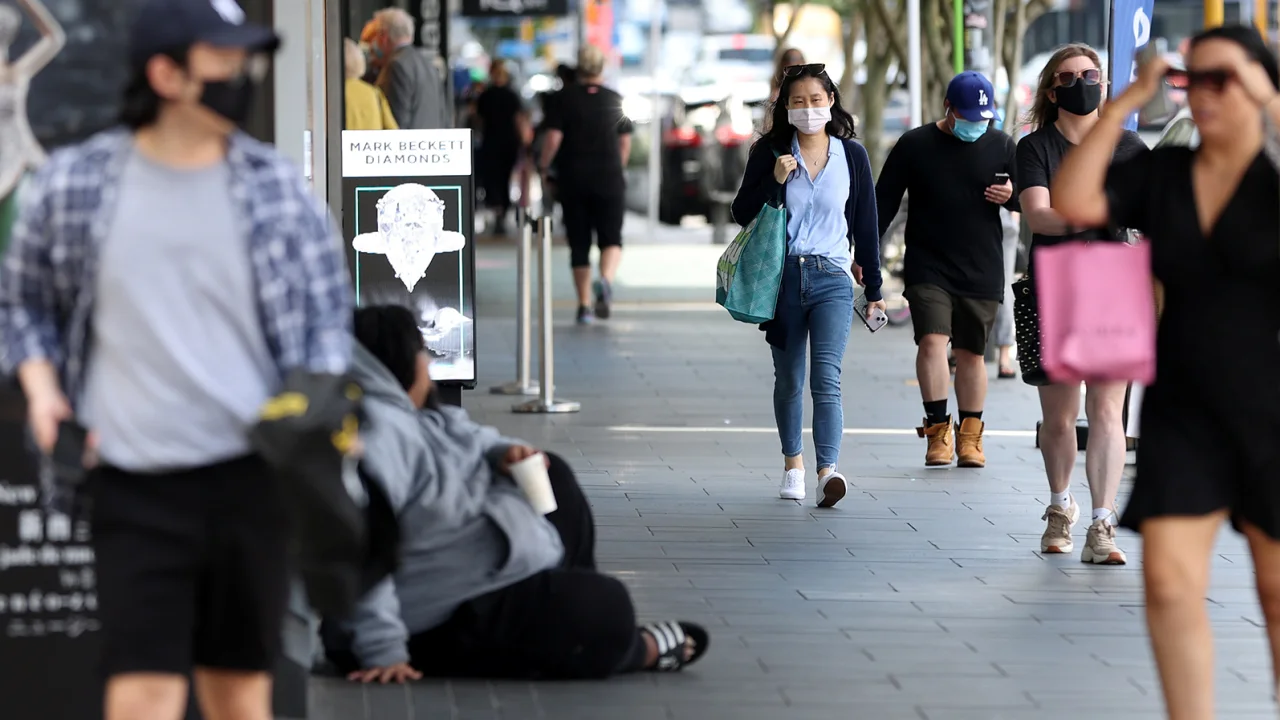This country has finally scrapped the last of its Covid restrictions
by Admin

New Zealand scrapped the last of its Covid restrictions Tuesday, bringing the final curtain down on one of the world’s strictest pandemic policies as the government said the country suffered a far lower mortality rate than many other nations.
Health Minister Ayesha Verrall said the island nation was ending its remaining seven-day mandatory isolation rule for those who test positive for the coronavirus as well as mandatory masks in health care facilities from midnight on Tuesday.
New Zealand was something of a poster child for how nations could successfully fend off the coronavirus when it first hit in 2020, ordering early lockdowns and strict border measures.
But it also kept the island nation closed off internationally and became increasingly unpopular as the rules dragged on and took a toll on the economy.
“It has been a long road, however thanks to lots of hard work, New Zealand’s COVID-19 approach has moved from an emergency response to sustainable long-term management,” Verrall said in a statement Monday.
“While our case numbers will continue to fluctuate, we have not seen the dramatic peaks that characterized COVID-19 rates last year,” the health minister added.
Covid has put considerably less pressure on the health care system this winter, New Zealand’s current season, with cases accounting for just 2.2% of recent hospital admissions, according to the government.
“This, paired with the population’s immunity levels, means Cabinet and I am advised we’re positioned to safely remove the remaining COVID-19 requirements,” Verrall said.
But she said those who are “unwell or have tested positive for Covid-19” are advised to stay at home for five days.
She also stressed that face masks remain an important means to prevent the spread of respiratory illnesses in health and disability care facilities.
Prime Minister Chris Hipkins called the move a “significant milestone”.
“The unity of the Kiwi response, and the sacrifices that were all commonplace all contributed to the many thousands of lives that were saved,” he said during a press briefing on Monday.
Hipkins said 3,249 New Zealanders died from the coronavirus out of the country’s 5.1 million population.
“If New Zealand had had a similar rate of Covid-19 mortality as the United States, we would be reporting around 15,000 deaths from Covid,” he argued.
The strict controls were not without political costs for New Zealand’s ruling Labour Party.
The initial success was spearheaded by his predecessor, Jacinda Ardern, and as the harsh restrictions dragged on, public frustration grew over its impacts that separated families for months and shut out all almost all foreigners.
The prolonged Covid lockdowns and mandates led to alarming scenes in the nation’s capital, Wellington, last March when protesters camping for weeks outside the Parliament set fire to tents, mattresses and chairs, at a time when the country was struggling with economic anxiety and rising costs of living.
Support for Ardern and the Labour Party plunged in 2022, before she announced her sudden decision to step down in January citing insufficient energy to keep her going.
As health minister during much of the pandemic Hipkins was closely associated with the zero-Covid controls.
New Zealand goes to the polls in October, and Labour are facing a stiff challenge from the center-right opposition National Party.
The country reopened its borders gradually throughout 2022, reversing the rigorous control put in place in March 2020 to keep foreigners at bay and limit spots for citizens to return.
In a five-step plan, it first allowed citizens to come home before welcoming the return of widespread tourism.
Over the last three weeks it has been co-hosting the 2023 Women’s World Cup alongside Australia.
New Zealand scrapped the last of its Covid restrictions Tuesday, bringing the final curtain down on one of the world’s strictest pandemic policies as the government said the country suffered a far lower mortality rate than many other nations. Health Minister Ayesha Verrall said the island nation was ending its remaining seven-day mandatory isolation rule…
Recent Posts
- Liverpool ends 15-year curse with statement win over Real Madrid
- The TSA-approved hack that allows travelers to bring a bottle of water through airport security
- Подводный WiFi, аквапонные фермы: как морские техностартапы привлекают инвесторов
- “Подводный интернет”: эта женщина может подключить беспроводную сеть на 3-километровой глубине
- Inside the wild world of Osaka’s dangerous, adrenaline-fueled float festivals